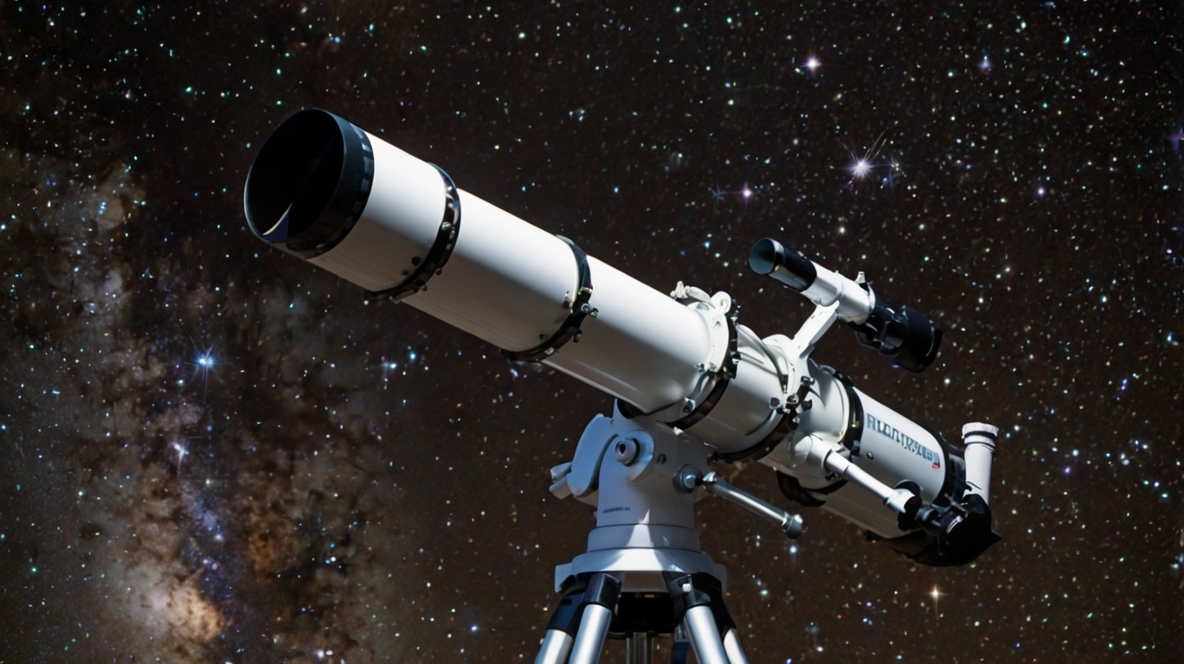A refractor telescope is one of the most popular and reliable tools for exploring the night sky. Known for their simplicity, durability, and high-quality optics, refractor telescopes are ideal for beginners and seasoned astronomers alike. Refractor telescopes offer exceptional clarity and precision. In this article, we’ll dive into some top models like the Orion XT8 Telescope, Explore Scientific ED102, and Celestron Telescope 114EQ to help you find the best refractor telescope for your needs.
Read about Best Budget Telescope here!
What is a Refractor Telescope?
A refractor telescope uses lenses to gather and focus light, delivering sharp and clear images of celestial objects. Unlike reflectors, refractors have a sealed tube, which prevents dust and moisture from affecting the optics. This makes them a low-maintenance and long-lasting choice for astronomy enthusiasts.
Benefits of Using a Refractor Telescope
- High-Quality Optics: Refractors are known for producing bright, high-contrast images, especially for lunar and planetary observations.
- Ease of Use: Their straightforward design makes them user-friendly, especially for beginners.
- Durability: With fewer moving parts and a sealed design, refractors are robust and require minimal maintenance.
- Portability: Compact models are lightweight and easy to transport.
Popular Refractor Telescope Models
Orion XT8 Telescope
The Orion XT8 Telescope, part of the SkyQuest series, is a powerful Dobsonian reflector, often compared to refractors for its incredible performance. Its 8-inch aperture allows for exceptional light gathering, making it perfect for viewing faint deep-sky objects. Paired with its easy-to-use design, this telescope is a favorite among intermediate and advanced stargazers.
Celestron Telescope 114EQ
The Celestron Telescope 114EQ is a beginner-friendly option with an equatorial mount for precise tracking of celestial objects. Although technically a reflector, its compact design and affordability make it an excellent alternative for those exploring refractor-like qualities. It’s great for observing the moon, planets, and brighter deep-sky objects.
Explore Scientific ED102
The Explore Scientific ED102 is a high-performance refractor telescope designed for astrophotography and detailed observations. With a 102mm aperture and extra-low dispersion (ED) glass, this telescope delivers crisp, color-corrected images. Its lightweight design and advanced optics make it ideal for serious hobbyists and professionals.
Explore Scientific ED127
The Explore Scientific ED127 is an upgraded version of the ED102, featuring a larger 127mm aperture for enhanced light-gathering capability. This refractor telescope excels in astrophotography and deep-sky exploration, offering stunning image clarity and minimal chromatic aberration. It’s one of the best refractor telescopes for experienced astronomers.
Choosing the Best Refractor Telescope
When selecting a refractor telescope, consider the following factors:
- Aperture Size: A larger aperture gathers more light, providing brighter and clearer images.
- Focal Length: A longer focal length is ideal for detailed observations of planets and the moon.
- Portability: If you plan to stargaze in multiple locations, choose a lightweight and compact model.
- Accessories: Look for telescopes that include eyepieces, finderscopes, and sturdy mounts for better usability.
Telescope Orion SkyQuest XT8: A Versatile Option
The Telescope Orion SkyQuest XT8 combines the power of a reflector with the simplicity of a refractor. Its 8-inch aperture and smooth Dobsonian mount make it a versatile choice for observing everything from planets to deep-sky objects. While not a traditional refractor, it’s a fantastic option for those seeking similar functionality with greater light-gathering power.
Tips for Using a Refractor Telescope
- Choose a Clear Night: Stargaze on nights with minimal cloud cover and low light pollution for the best results.
- Align the Finderscope: Properly aligning the finderscope with the main telescope helps locate objects quickly.
- Experiment with Eyepieces: Different eyepieces offer varying levels of magnification for detailed views.
- Invest in a Sturdy Tripod: A stable mount or tripod ensures smooth and steady observations.
- Learn the Sky: Use star maps or astronomy apps to familiarize yourself with constellations and celestial objects.
Maintaining Your Refractor Telescope
To keep your refractor telescope in top condition:
- Clean the Lenses Carefully: Use a soft, lint-free cloth and avoid touching the lenses with your fingers.
- Store Properly: Keep the telescope in a dry, dust-free environment when not in use.
- Protect from Extreme Temperatures: Avoid exposing the telescope to excessive heat or cold, which can affect the optics.
Conclusion
A refractor telescope is an excellent investment for anyone passionate about astronomy. With options like the Explore Scientific ED102 and ED127, you can enjoy stunning views of the cosmos. For beginners, models like the Celestron Telescope 114EQ and Orion XT8 Telescope offer great value and ease of use. No matter your skill level, the right refractor telescope will open up a world of celestial wonders.
